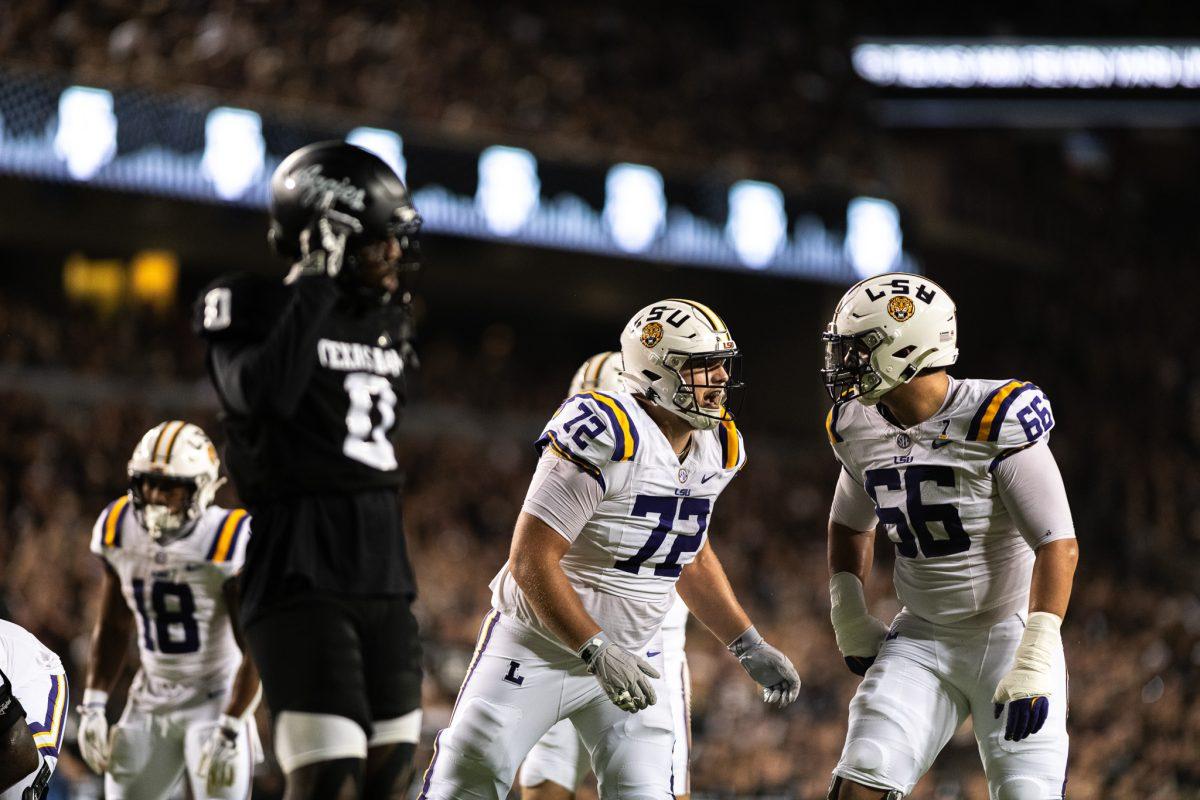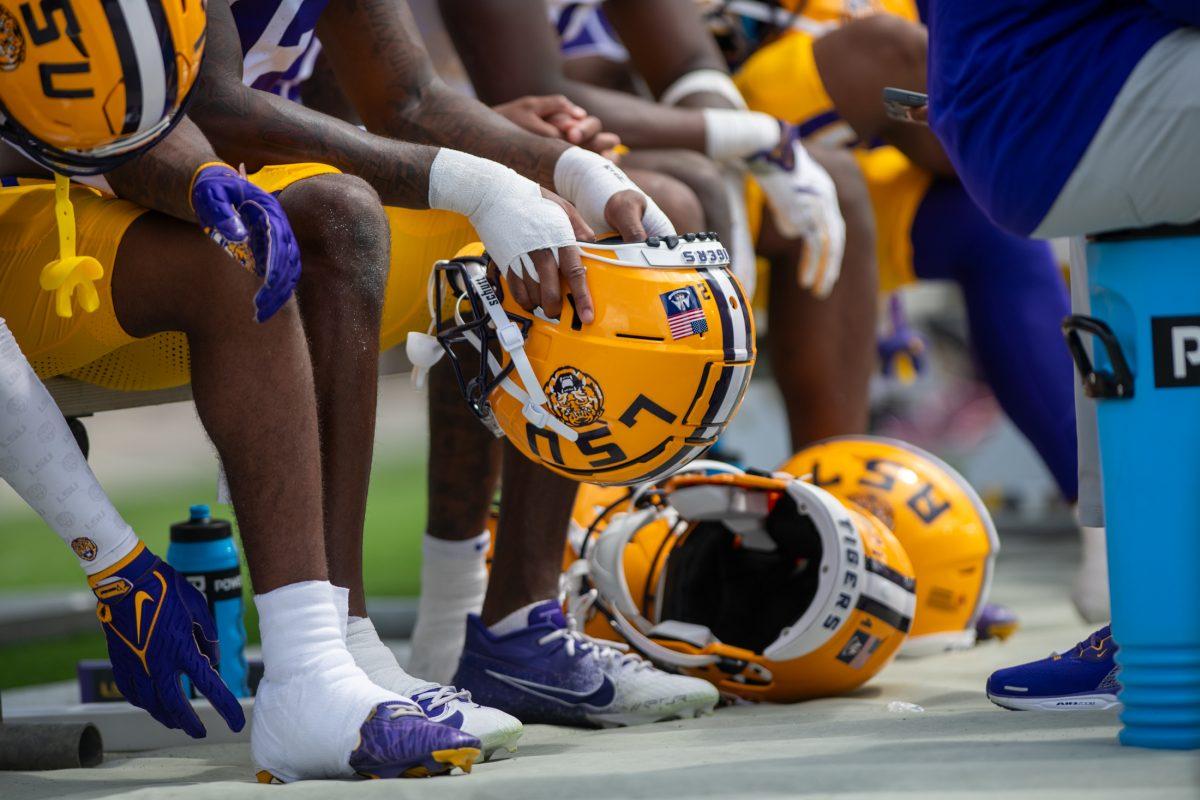Louis DeVita sifted through college brochures at his kitchen table near a refrigerator covered with photos from a decade of his and his siblings’ sports activities in a New Jersey home dotted with trophies from his years playing basketball and baseball.
As the smell of spaghetti filled the air from his mom’s cooking and his dad watched the final minutes of the Knicks game nearby, DeVita sought to narrow his college choices with two simple criteria: a strong broadcast journalism program and a school with a competitive sports culture.
Flipping through the stack, a purple and gold pamphlet caught DeVita’s eye. He said he felt a pull toward a school he had no ties to – Louisiana State University.
“When I saw those three letters on the page, all I could think about was Joe Burrow and his national championship,” DeVita said. “If he loved it there, why wouldn’t I?”
DeVita’s story isn’t unique. Across the South, especially the SEC, the success of college football programs, particularly those that win national championships, has led to a surge in applications and enrollments.
Steve Orlando, associate vice president for strategic communications and marketing at the University of Florida, said this is known as “The Flutie Effect,” named after Boston College’s 1984 quarterback Doug Flutie who threw a last-second 48-yard “Hail Mary” pass that was caught to beat the University of Miami.
According to a Forbes article, the two years following the win, applications shot up 30%.
Ever since then, Forbes said admissions offices and deans have acknowledged sports to be one of the greatest marketing campaigns schools can have.
Orlando said he can attest the truth of “The Flutie Effect” by looking at his own school in Florida.
The Gators won the NCAA basketball national championship in 2007 and secured their second football national championship in the same year, becoming one of only a few schools to achieve both in the same calendar year.
“In the span of 365 days we had a national football championship and a basketball national championship, and you bet we saw a spike in enrollment,” Orlando said. “Although we can’t say if it’s specifically because of that because we never asked the applicants why they applied, it’s hard to say the championships didn’t play a factor in their decision when all hands are pointing towards yes.”
Orlando also said, championship or not, it’s hard to look past football in the SEC.
“It’s like a religion here,” he said. “Everyone knows to not get married and not to die in the fall.”
LSU had a similar experience with applications after winning the football national championship in 2019 and having a record-breaking, undefeated season.
From 2019 to 2023, LSU saw a 57% increase in new freshman applications and admitted over 10,000 more students than in 2019, according to the student data reports LSU releases. This number was significantly higher than the average for most universities across the South during that same period.
Julian Radney, interim associate director of admissions at LSU, acknowledged that the 2019 championship “got the ball rolling,” but he said he believes LSU’s overall brand has had a more significant impact on the increase in admissions.
In a 2023 post-game press conference for LSU women’s basketball head coach Kim Mulkey echoed this sentiment, saying, “those three letters, L-S-U, they don’t mean anything else but Louisiana State University. It’s an international brand.”
LSU has won three more championships in the years since the report was released, including a baseball championship in 2023, a gymnastics national championship in 2024 and its first women’s basketball championship in 2023.
However, Orlando said, although it’s a possibility, other sports don’t compare to football when talking about the SEC.
“Football is just so high profile in the SEC,” he said. “There’s nothing like it.”
As Radney and Orlando said, the spikes in enrollment that universities are seeing can’t be fully credited to national championships. Since most universities don’t ask students their reasons for applying, it’s hard to fully determine why applications are increasing.
However, Orlando said it’s difficult to deny the theory when it continues to happen under similar circumstances.
Whether “The Flutie Effect” is true or not, Orlando and Radney agree that most admissions offices see sports as one of the most powerful marketing tools. In the SEC, Orlando said, sports, especially football, are a way of life.












